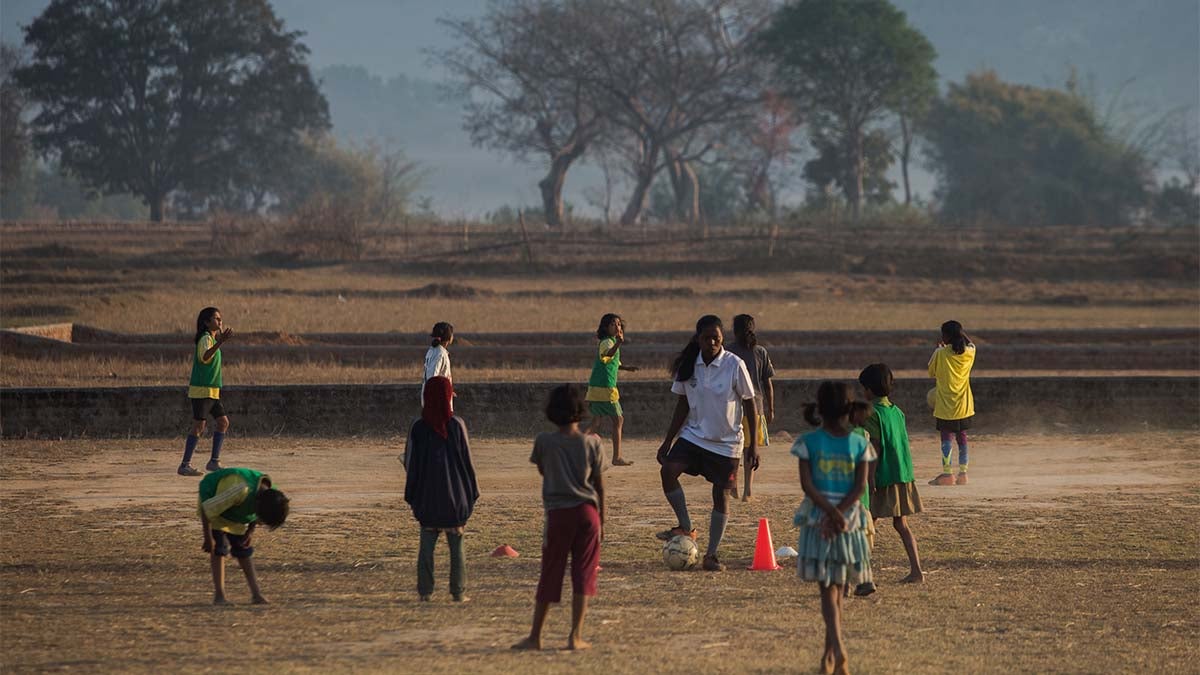Slum Soccer helping inform Indian women about menstrual health

At 12 years old, a young Indian girl named Bholi had to have her uterus removed.

Why? Bholi contracted a reproductive tract infection because of her lack of knowledge about sanitary products and menstrual hygiene.
Menstruation in India holds women back from going to school. It holds them back from religious spaces. It also affects their participation in or attendance for sports. According to Menstrupedia, many male coaches aren’t educated on the effects of menstruation. As a result, they often force female athletes to train hard while suffering from menstruation pains.
How could something so natural negatively impact the lives of millions of women?
In India, the topic of menstruation is so taboo information about it is minimal and sanitary products are scarce.
A 2016 study in Menstrual Health in India reports 71 percent of Indian girls don’t have any information about menstruation before their first period. The study also shows 70 percent of Indian women say their families cannot afford sanitary products. Communication about menstruation and sanitary supplies are also a problem when discussing the subjects with men.
“If you were to buy a packet of sanitary napkins today, you have to go to a chemist shop or a medical store, which is manned by men — male shopkeepers,” Suhani Jalota, co-founder of the Myna Mahila Foundation, told CNN. The foundation employs women to supply sanitary supplies to women in Mumbai slums.
“There are male bystanders; there are male customers — and there's this one woman there who's announcing that she wants a packet of pads, implying that she has her period. So the male shopkeeper kind of doesn't even look at her straight.”
Schools are problems as well.
“There is a lack of facilities and infrastructure at schools,” Jalota said.
But the world of sports is trying to combat those issues through soccer.
According to Slum Soccer, the organization and WASH United are developing a Menstrual Hygiene Management Educational Guide for India. The guide will use affordable and easy to use game and sports methodology. The 2019 Oscar winning film, “Period End of Sentence,” highlighted the problems Indian women face regarding menstruation, but the guide will shed more light on the issue.
According to Beyond Sport, the guide will reach more than 2,200 girls across India.
In 2018, Menstrual Hygiene Day Festival was held in India. The three-day festival encouraged dialogue between mothers and daughters about menstruation.
The festival also allowed girls to participate in a soccer tournament. Menstruation usually excludes them from playing, but the festival did not have such restrictions. It was a way for girls to feel free, playing the game they love.
The soccer tournament was also a part of Generation Amazing, a soccer-driven development program that is a part of Qatar’s legacy authority for the 2022 FIFA World Cup.
One hundred and fifty girls participated in the twelve team tournament and competed for the “MHM Cup 2018.”
The activities and soccer tournament were crucial in helping these girls feel educated and comfortable with their menstruation. What they learned could help them avoid going through what 12-year-old Bholi went through.
Katelyn Oates is a sophomore journalism major at Arizona State University

